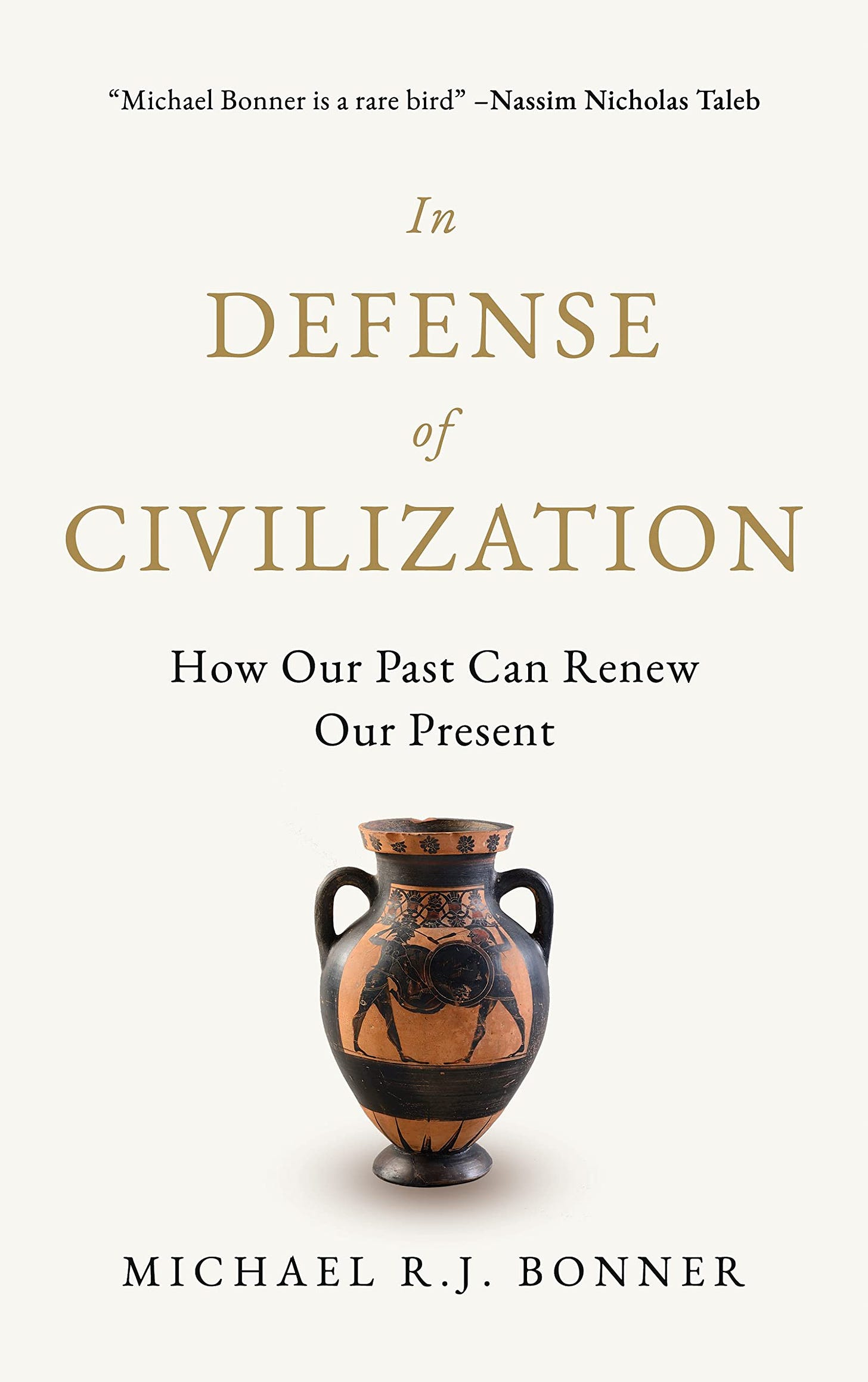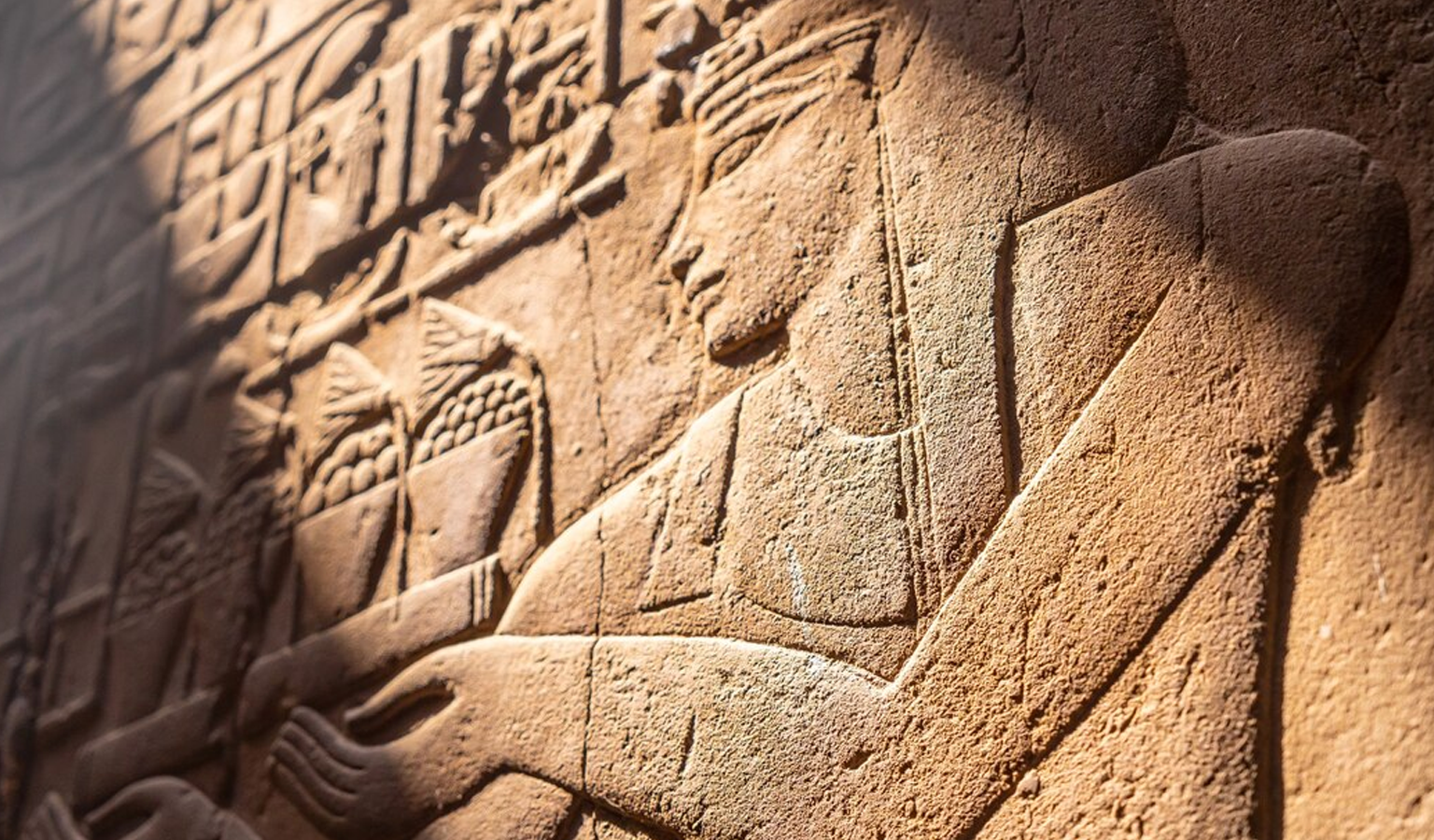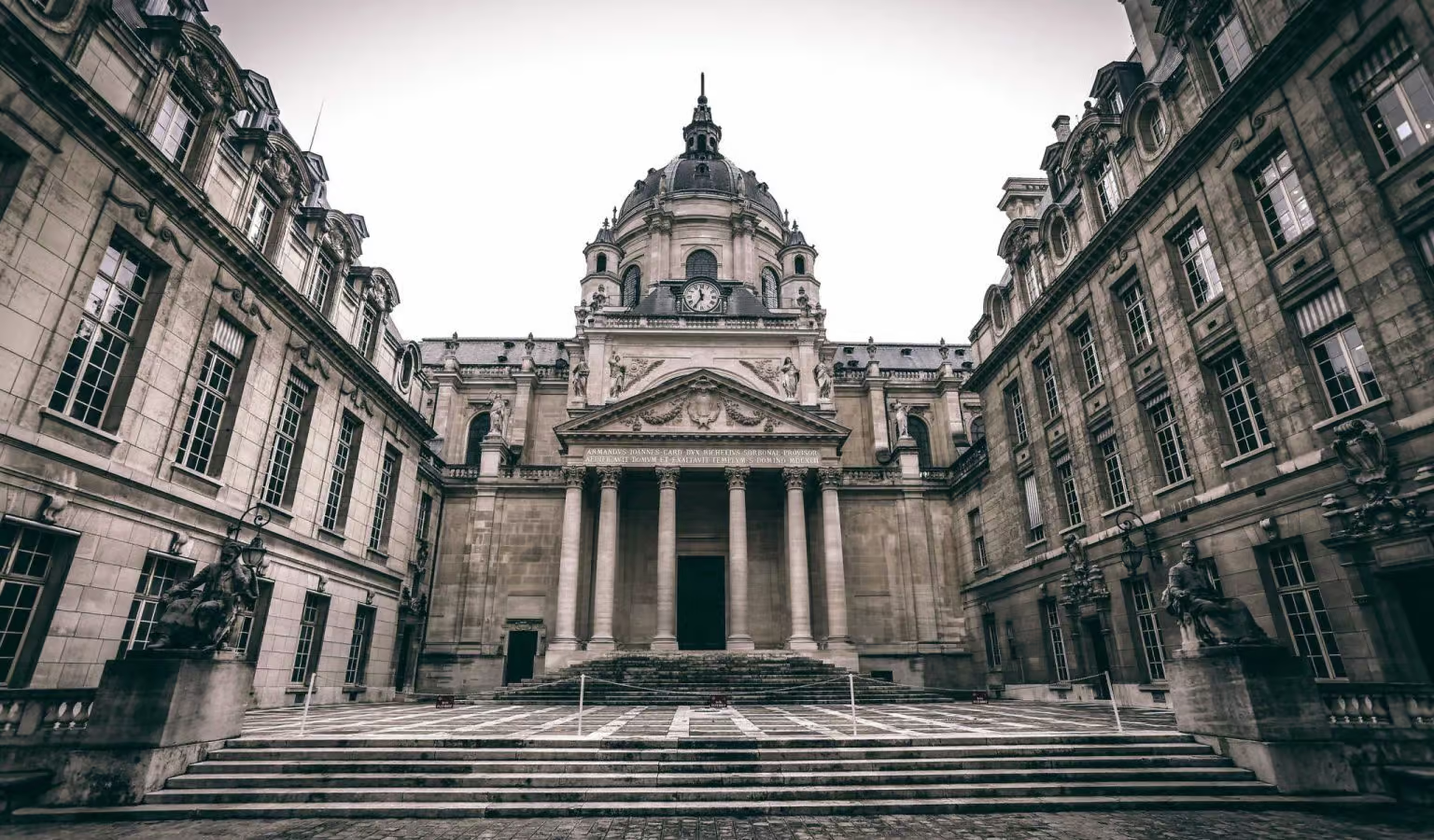Julie Ponesse reviews Michael Bonner’s In Defence of Civilization.
“What are we? Humans? Or animals? Or savages?”
So questions The Lord of the Flies’ “Piggy,” the philosopher, the one who keeps the signal fire going, the one who remains, even to the dismal end, a passionate believer in civilization.

What, I wonder, would the optimistic Piggy think about the state of our civilization today? With a looming financial collapse, the quiet (but constant) threat of nuclear war, demagoguery, the ability to ‘optimize’ ourselves beyond recognition, and the growing “IBG/YBG” (“I’ll Be Gone, You’ll Be Gone”) attitude, it’s hard not to be pessimistic about the world’s constant state of flux and vicissitude. Are we approaching a point-of-no-return civilizational collapse? Or is there reason to be hopeful as we paradigm shift towards a new social norm? These are the central questions of Michael Bonner’s timely (and timeless) new book, In Defense of Civilization: How Our Past Can Renew Our Present.
Bonner begins with the claim that there is a palpable feeling, in the West anyway, that something is deeply wrong, that the “liberal democratic order is in danger, and that civilization itself hangs in the balance.” Bonner tackles this volatility head-on, exploring history’s ‘high-water’ marks of cultural instability, their causes, why some cultures survived the odds, and how these insights can help us to navigate our own cultural crisis.
Bonner’s book is a historical and philological tour de force with the author’s fluency with Prehistory, and Ancient and Modern history — in both the East and the West — on display on every page. He describes himself as a fan of ‘big history,’ “the sort of historiography in which the particular and the minute are dissolved within deep currents and long-term trends,” and quickly proves himself to be a model of the style he reveres. Bonner tells humanity’s story in grand swaths: how our obsession with perfection swooped in with Baroque and Neo-Classical art, and then out again with the Romantics; how our interest in monumental architecture waxes and wanes with shifts in stability and meaning.
Bonner’s analysis is sober and unapologetic but, unlike much of the cultural writing of today, not intractably apocalyptic. Rather, he focuses on the ‘silver lining’ lesson that civilizations, like individuals, have a remarkable power of rejuvenation and reinvention. Drawing on such examples as the European Renaissance after the collapse of the Roman Empire, and the debt it owed to the regenerative power of Iranian civilization in the Islamic Golden Age, Bonner shows how humankind flourishes not by a spiritual obsession with technology and perfection, but by thoughtful engagement with the past. As an example, the iconography, the practice of lending money at interest, and even the alphabet of the Archaic Greeks came largely from the Phoenicians. The Phoenix rises from the ashes, it seems, by first picking through the debris.
There are more gems in the book than I can honour here so I will focus on a few of its most striking contributions.
The first is Bonner’s response to the book’s most philosophically interesting question: What makes a group of people recognizable as a civilization? Bonner leads with Kenneth Clark’s infamously dissatisfying answer that introduced his 1969 BBC series Civilization: “I don’t know…but I think I can recognize it when I see it.” Bonner shares Clark’s sentiment but makes explicit what he takes to be civilization’s defining characteristics: clarity, beauty, and order. Civilized societies, he argues, have functional governments, well-ordered households, the luxury to focus on beauty, and most notably, a general feeling of being settled.
With these criteria in mind, I wonder if the concept of Western civilization — rooted in the culture that emerged from the Mediterranean basin more than 2,000 years ago — is still meaningful. Given our globalization, political instability, and heroized incivility, does our civilization pass Bonner’s clarity-beauty-order test? And, if it fails, what was our ‘jump the shark’ moment, that instant when we began to pull the thread that led to our fateful unraveling? Most importantly, do we realize that this might be the time to pick through the debris and face up to the work of reinventing ourselves?
To this end, I found myself craving a deeper reflection on the normative sense of “civilization,” what distinguishes “civilized” societies from those that are tribal or barbaric. Civilized people, Bonner agrees, are sophisticated, noble, and good; they are elevated in every way beyond savagery and barbarism. But what happens when the ideals of civilization and savagery become inverted, when the most ‘civilized’ among us become intolerant of debate, when the elites become barbarians, when we laud hatred and division? Does this create a new, ‘progressive’ form of civilization or does it signal, or fuel, our decline?
A gem of Bonner’s book is his analysis of what goes wrong when civilizations collapse, and what has gone wrong in recent decades to weaken our civilization. The colossal failure of postmodernism factors heavily into his diagnosis but particularly elegant is the way he frames it as a move from polymathy to “atomized specialization and pointillist focus on minutiae” that set science adrift from the humanities’ interest in value and identity. Without philosophy, art and literature to explore what makes life meaningful, we become enslaved to science rather than masters of it. Postmodernism’s nihilism has, effectively, left us trapped in a modern Babel.
I agree with Bonner’s concern in this respect. Personally, what I worry about most these days is not that we will experience some punctuated calamity — sudden economic collapse or nuclear war. I worry that we’ve lost the plot, and that with all our focus on the ability of ‘Science’ to save us, we’ve lost the ‘why’ to our ‘how.’ I worry that our materialism, our progressivism, and our apathy are incurring a debt we may not be able to pay. I think Bonner shares this worry and, if his remedy is right, then we need to re-prioritize values over facts lest we become victims of our own ingenuity.
I would like to end by offering something to the book’s insights about civilizations as complex systems. Bonner reminds us that civilizational collapse is the rule, not the exception. The kingdoms of Mycenae in Greece, the Hittite empire in Anatolia, the Egyptian New Kingdom, the Roman destruction of Carthage. Even the most accomplished, triumphant civilizations are vulnerable to total destruction. Insights from system failure studies help us to understand why this is.
Civilizations are complex systems—of technology, economics, foreign relations, immunology, and civility—and the more complicated and efficient a system becomes, the more likely it is to collapse. Very often, the combination of faults that lead to failure was tolerated for a long time, or the supposed ‘fix’ leads to its demise. As Edward Gibbons points out, the Roman Empire ultimately succumbed to barbarian invasions, but it was the gradual loss of civic virtue among its citizens that made it vulnerable. If our civilization collapses, it won’t be because of an outside attack, like Bedouin charging in from the desert. A punctuated event like a war or global famine might issue the fatal blow but the real killer will be the parasites that destroy us from within, the loss of meaning that unmoors us from the past, the incivility that gnaws at the threads that have, for millennia, held us together.
Bonner’s book is far from all doom and gloom. On the contrary, it is a treatise on hope, a self-help book for humanity that invites us to step out of the manic race towards immunity and invulnerability, and ask ourselves who we are, why we do what we do, and how we can re-connect with the most meaningful parts of our past. It is, ultimately, inspiring and deeply human.
Bonner’s answer to Piggy’s question “What are we? Humans? Animals? Savages?” is, I think, strikingly Aristotelian. Man, according to Aristotle, “is by nature a political animal.”1 And by that he didn’t mean that we are particularly interested in politicians, elections and the politicization of issues but rather in living together with others, in community, in friendship and in humanity.
Whether we celebrate or bemoan it, our civilization is built largely on the foundational ideals of ancient Greece and Rome that endured long after their physical structures and governments crumbled. But they endured because we found them meaningful. They endured, and will endure, through literature and art and conversation and ritual. They will endure in how we gather, how we write about one another, and how we care for our sick and aging.
If we are to remain civilized, we need to remember that we are primarily human, that we can use science and technology to craft ourselves in various ways, but we must be vigilant in resisting a ‘progressive’ decline away from meaning and value. This is what will allow us to choose our future and not be led passively into our decline.
At the end of the book, I struggled to decide whether we would do better to collapse or to hold on with ‘white knuckles’ to the remains of our civilization. If Bonner is right, then we will fare well either way since a civilization that loses its civilizing features ought to collapse and, when it does, something with greater clarity, beauty, and order will emerge in its place.
Bonner leaves us with two important truths: we are all naturally embedded within relationships of kinship and descent, and we all inherit cultural and social patrimonies. These most naturally flourish within households since they are the units that “maintain and transmit” culture. As we move forward, we would do well to be skeptical of the promise of globalization and state intervention to protect us, to constrain us, and to fulfill us since they are a poor surrogate for what the household, and the mutual assistance between households, can offer.
If Bonner is right, and I think he might be, then the simplest cultural solution is the most promising. Go home, bake your grandmother’s recipes with your children and tell them about the old days. As trite as it sounds, this may be the key to our salvation, or at least to our rebirth.
Julie Ponesse is a Canadian professor of ethics and philosophy with a strong focus on moral reasoning and its application in real-life situations. She gained widespread attention for her advocacy of individual rights and academic freedom during the COVID-19 pandemic. She is the author of “My Choice” and a 2023 Brownstone Institute Fellow.
In Defense of Civilization: How Our Past Can Renew Our Present is published by Sutherland House Books.



